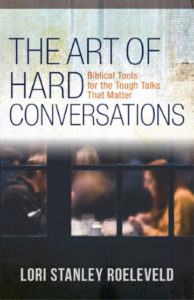The Gospel of Gotcha
It wasn’t hard to do.
Two of his favorite methods of torture
were to hide places in the house and jump out at me as I walked past
(I was a nervous kid right out of the gate)
or sneak up to the windows after school and try to catch me
singing into my hairbrush performing imaginary concerts in the living room.
I kept a vigilant eye out for him all the time
but he got the best of me more often than I was able to ferret him out.
“Gotcha!” His triumphant cry
and no matter how much my mother scolded him
she couldn’t change the humiliating fact that I’d been “got.”
“Outed” in my skittish fearfulness.
“Busted” in my fantastical imaginary life where I was a famous singer performing for millions.
What is it that makes us do that to one another?
Because it’s not just my brother,
something in all of us revels in catching others, particularly those we envy, in some weakness or failing.
I’ll admit that when I find someone intimidating or whose life seems more perfect than mine,
I can easily be tempted to comfort myself with their failings, real or imagined, so that I can somehow
excuse myself from trying harder or applying myself to change.
We live in a “gotcha” culture of media aggressively seeking the next big expose
and crime shows designed to train us all as profilers and vigilante detectives.
In the church, we use theological sounding words to cover our inner reveling at the “gotcha” of others,
we hijack concepts like accountability, tough love, confrontation, cleansing, and discipline to mean
something other
than the constructive tools these ideas are when administered with truth, love, grace, and in the context of the gospel that we have ALL fallen short.
We are so tuned to the “gotcha” gospel, that the most shocking moment in our lives is the exercise of grace,
even with 2000 years of church history behind us –
unmerited forgiveness and kindness extended to sinners
remains a rarity so remarkable our hearts and minds scramble to grasp the magnitude of it
but we often fail to penetrate its mystery and bounce off of grace like hailstones on a tin roof
landing far from grace
dazed and confused
because we know that of all spiritual disciplines,
extending grace is the thing for which we most need the power of the Holy Spirit
it is the thing we are least likely to be able to pull off under our own steam.
So when a writer pens a scene in a novel in 1862,
a scene of grace extended to a convict,
a man who repays the hospitality of a priest by robbing him
and then the priest acts out the gospel of grace
in the face of the gospel of gotcha
this scene endures through the centuries
as one we never tire of watching, of portraying, of retelling
at the wonder of it.
When Bishop Myriel hands Jean Valjean the candlesticks to add to his pilfered bag of treasure
he hands us the gospel on a silver platter
and we squirm at the discomfort of something so foreign
we know it must be supernatural.
Are you living out the gospel of “gotcha” or the gospel of grace?
The first, can be accomplished under our own steam,
the second requires a power source that can only be found at the feet of Jesus.
Do you have a story of grace extended to you or to another that you’ve witnessed? It would bring joy to all of us to hear it here today.












The Conversation
The Gospel of Political Correctness feasts on “gotcha” media moments. A slum lord goes unnoticed while a person seeking to do the right thing accidentally uses the wrong word or phrase and is depicted being worthy of crucifixion.